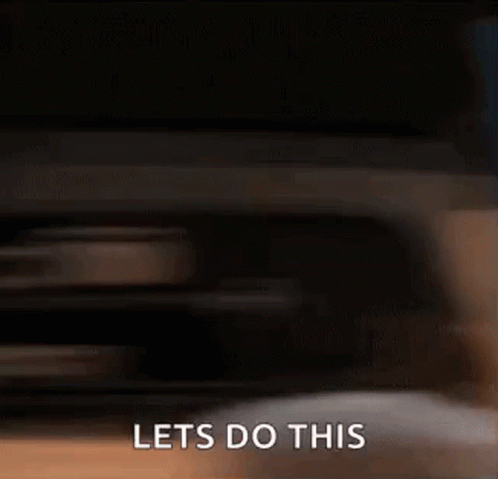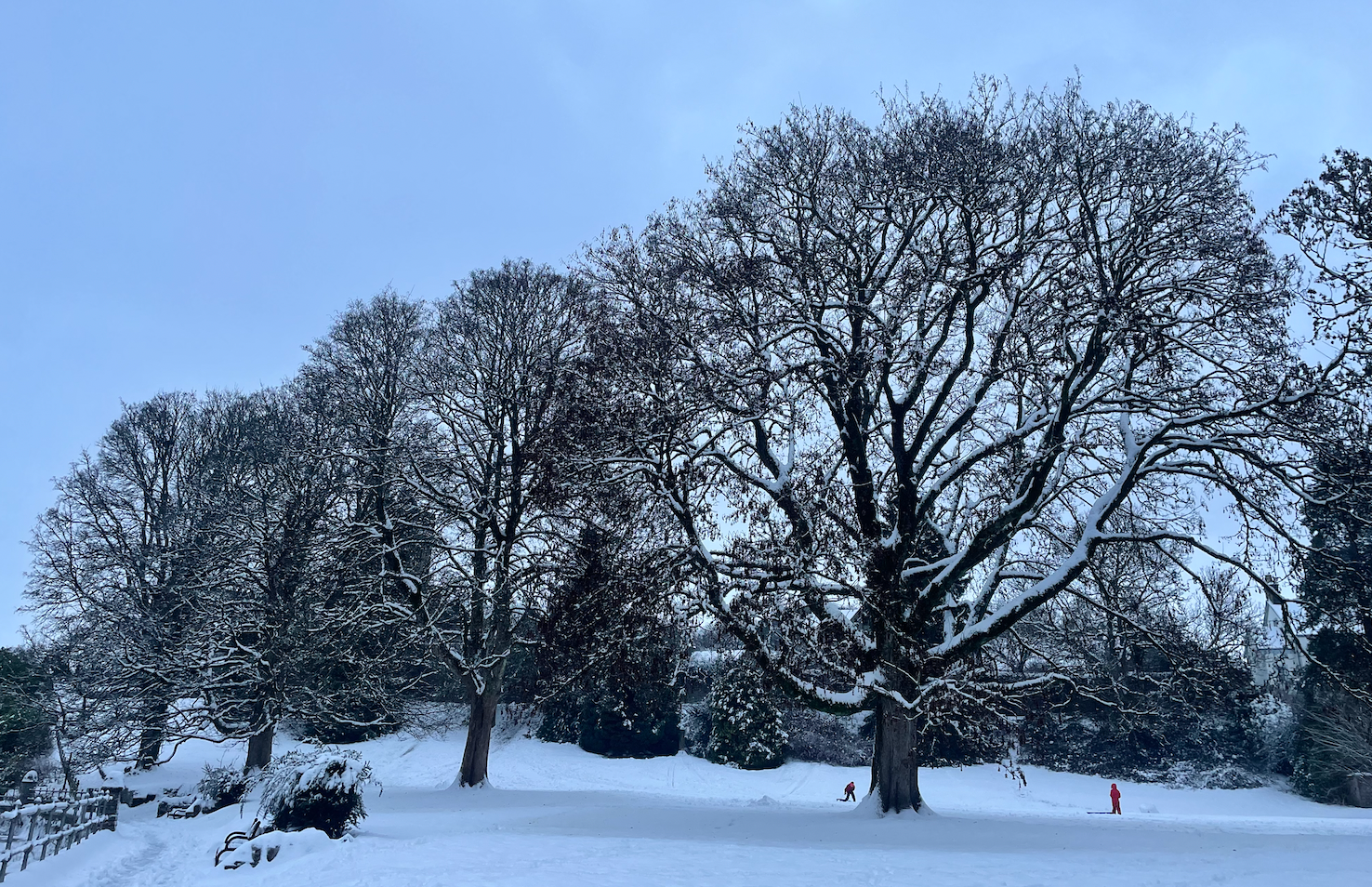I’ve seen the reports about it being a wet and cool December back home — one Telegram alert I received even used the term “sweater weather”. This is hilarious from where I am in Scotland, where it dipped to -8 degrees Celsius over the past week. I had to slog through lots of snow to get down to the high street this morning, but it was worth it because I had a very nice time in the tearoom and am now ensconced in a lovely cafe with a log fire. (And I also got to log the walk as a workout, which is a bonus hehe...)
Lobang alert: I’m a happy user of Craft, which I prefer to Notion. As a subscriber to the app, I’m able to give out free three-month subscriptions to people for the holiday season — you just have to redeem the code before 1 January 2023. Does anyone want to try Craft out? Reply to this email and I’ll send you an invite link.
Here we are, (almost) the end of another year
This is the last weekly wrap of 2022 — I’m taking a break from We, The Citizens for the last two weekends of the year and will be back in January. The Mekong Review Weekly newsletter, where I write about the running of an Asia-focused literary magazine, will go on for one additional week, and then we’ll be off for the holidays too.
For me, the first half of 2022 was a horrific blur of desperation, anger and grief as the state resumed executions at a terrible pace. Nagaenthran K Dharmalingam’s case in particular received plenty of local and international attention, and prompted me to learn and write about procedural accommodations and access to justice for persons with disabilities. For all our desperate efforts and various legal challenges, the state executed Nagaenthran — and many others — this year anyway.
Russia invaded Ukraine, and the misinformation and propaganda began spreading right away, which led to this collaborative debunking issue. There was also that whole saga over what Raeesah Khan said in Parliament; while lying in the House is undoubtedly a problem, the way the whole situation was handled highlighted Singapore’s elastic commitment to accountability and checks on power.
In the latter half of this year, when the international press furore over Singapore’s execution spree had died down somewhat and the government could come out with statements on their terms, we were subjected to a pro-death penalty, pro-War on Drugs public relations push. This even included stunts like challenging Richard Branson to a live TV debate. Other events also drew attention to Singapore’s zero tolerance drug policy: when Joseph Schooling and other national swimmers were found out to have consumed cannabis abroad, people started asking why Singaporean bodies are being policed even when we’re not in the country.
Last but not least, we finally got rid of Section 377A. It has been such a long time coming, but the fight continues, because Parliament also passed amendments to the Constitution that blocks legal challenges against the definition of marriage.
Scrolling through the archives of this newsletter, time seems to have had this weird elastic quality: some things that feel like they’d just happened were actually months ago, whereas other things that took place within this year I could have sworn happened a year or two ago. Am I ready for 2023 yet? I’m not 100% sure. But I’m grateful to have made it through this year and be where I am now: with family I’ve not seen in a long time, breathing in clean winter air and looking forward to learning from a new job.

Let workers sit (and live)!
2022 has been a deadly year for workers. A 32-year-old migrant worker from India died on a construction site this past week after being hit by a the boom of a crane. This is the 44th (!!!) work-related death this year. A 45-year-old man has been arrested on suspicion of causing death through negligence, although it’s not known so far what his role was. But when there have been so many fatalities — which makes me wonder how many injuries, big or small, reported or not, there have been — across different construction sites and companies, it indicates that there is a systemic problem that can’t be solved by arresting individuals.
Meanwhile, past and present Watsons employees have told Workers Make Possible that they weren’t allowed to sit while at work. Cashiers aren’t given chairs and are expected to stand the whole time. They’re only allowed to sit during their breaks, but those breaks aren’t long or frequent enough to make up for the hours and hours they’re expected to stay on their feet. 😡
It’s ridiculous that this is even an issue that needs to be discussed. As a customer, it really doesn’t make a difference to me whether cashiers are sitting or standing, and it just makes so much sense for them to be allowed chairs that it boggles my mind that Watsons needs to ‘gather feedback’ about this. JUST GIVE THEM THE CHAIRS
The price of a HDB flat
There’s been a lot of talk about the cost of housing, particularly public housing. Progress Singapore Party NCMP Leong Mun Wai has argued that land costs shouldn’t be included when setting the price of Build-to-Order flats, since a lot of the land on which these flats were built were acquired by the government in the 1970s and ‘80s under the Land Acquisition Act, at prices that were definitely far lower than what it’d be worth now. Senior Minister of State for National Development Sim Ann hit back, saying that disregarding land costs would result in “hurting all Singaporeans”, because increasing housing subsidies will mean having to reduce spending on other things like education or healthcare and might also lead to — dun dun dunnnn — higher taxes. 🫢 Once again, it comes back to that narrative of “do you want us to draw more from our reserves”?
I’m far from an expert when it comes to things like fiscal policy, but reading about this reminded me of this 2020 Academia.sg piece by Manu Bhaskaran and Linda Lim. They remind us that there is a trade-off to be considered: do we spend on helping/supporting the current generation, or squirrel the money away for a future generation that may or may not be more well off? It’s not a no-brainer, and is in fact an issue that warrants greater public discussion.
“Reserve accumulation is inherently regressive: it transfers resources from poorer earlier generations to today’s or tomorrow’s richer generations when reserves are eventually expended. Borrowing, on the other hand, must be repaid by future generations, who, given an expectation of positive economic growth, will be richer than today’s generation, so better able to afford repaying the debt. Only those with extraordinarily little faith in Singapore’s fundamentals and leadership would project a future of absolute economic decline, making debt repayment an issue more serious than that faced by most of the world’s troubled economies.
[...] Singaporeans, whose decades of suppressed consumption are the source of government surpluses and reserves, should be more involved in discussions determining how their social savings are invested. This could increase productivity and improve distribution.”
I’m running a little survey just to check in on how people are feeling about this newsletter. If you have a bit of time, please fill this in!

Thank you for reading this week! As always, please help me spread the word about this newsletter by sharing it widely. And have a great Christmas and New Year!
